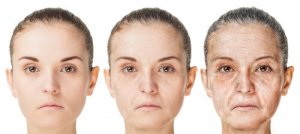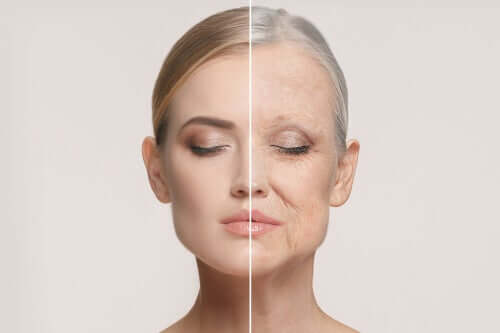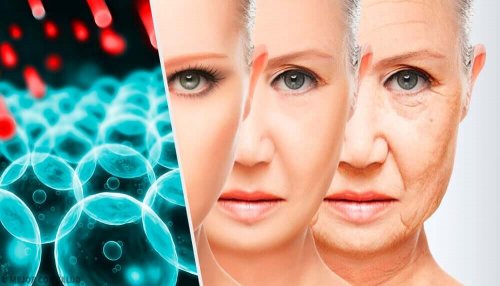When Do We Begin to Age?

It isn’t easy to define exactly when we begin to age, since the concept of aging is relative. Some people may have wrinkles but otherwise enjoy excellent health and vitality. On the other hand, some people have smooth skin but suffer from poor health.
One aspect that makes it difficult to know when we begin to age are the cultural myths that prevail nowadays. There are many methods that can help you look young, even at older ages. However, this doesn’t mean you haven’t aged.
Your external appearance is just one of the variables that define when exactly you begin to age and it certainly isn’t the most important. Other processes more accurately define the point at which you begin to age.
The aging process
The first thing we need to say is that aging is a complex process. It’s so complex that experts have more questions than answers regarding it. It isn’t easy to determine at what age we begin to age, among other things, because this doesn’t happen at the same age in all people.
In fact, not all organs age at the same time. Also, one thing is biological aging and another psychological or social aging. Either way, it’s generally accepted that aging begins when a functional tissue decline occurs.
Although this isn’t entirely accurate, experts estimate that aging begins when the cells begin to malfunction. These malfunctions include:
- Accumulation of gene defects
- Shortening of telomeres, which are located at the end of chromosomes
- Errors in the elimination of defective proteins

Keep reading: Improve Your Health and Slow Down Aging with the FMD
When exactly do we begin to age?
There’s no consensus on when exactly people begin to age. The most conservative experts point out that this process starts at age 25, since that’s when the cells start to malfunction. In particular, the gradual process of muscle mass loss begins.
Jaime Miquel, former director of the NASA aging laboratory says that people begin to age when they turn 30. He indicates that, at that age, the genetic program begins to deteriorate and physiognomy changes occur. These changes include:
- Weight gain
- The metabolism slows down
- Some hormonal changes
- Memory loss
- Changes in sleep patterns
The speed the process occurs thereafter depends on genetics and lifestyle.
A study by Stanford University
According to a study conducted at Stanford University, aging occurs in three stages and doesn’t occur uniformly. The study was published in Nature Medicine journal and states that there are five aging markers:
- Firstly, slower metabolism
- Weaker bones and bone structure
- Also, memory problems
- Sleep patterns change
- Finally, muscle structure deterioration
Based on these parameters, there are three big aging moments. The first occurs at age 34, the second at age 60, and the third at age 78. From that perspective, the age at which we begin to age is 34.
According to Tony Wyss-Coray, professor of Neurology and Neurological Sciences and director of the study, notable changes in blood-borne proteins occur at the indicated ages. That’s what marks these aging peaks.

Find out more here: 5 Symptoms of Aging On Your Neck and How to Reverse It
Chronological age and biological age
Chronological age is the traditional concept of age. It refers to the number of years you’ve lived since your birth. This is basically a social and cultural indicator. However, it’s very important from a biological standpoint.
On the other hand, biological age is measured with cell deterioration. More precisely, one could say that it’s measured from the body’s energy capacity to repair cell malfunctions.
This can be established due to the length of telomeres. Telomeres are the ends of chromosomes. They shorten every time a cell divides, until they deplete and the cell dies. The state of this process allows experts to measure biological age, which doesn’t always coincide with chronological age.
All cited sources were thoroughly reviewed by our team to ensure their quality, reliability, currency, and validity. The bibliography of this article was considered reliable and of academic or scientific accuracy.
- Salech, M. F., Jara, L. R., & Michea, A. L. (2012). Cambios fisiológicos asociados al envejecimiento. Revista Médica Clínica Las Condes, 23(1), 19-29.
This text is provided for informational purposes only and does not replace consultation with a professional. If in doubt, consult your specialist.








